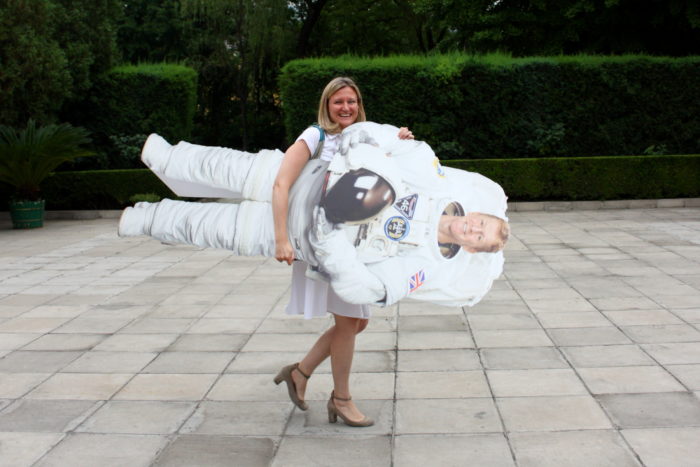Tomorrow is my last day in the China Science and Innovation Network. It’s been fun. It’s been hard work. It’s been a privilege. Here’s a look back at some of the highlights from an amazing team during my three years in what might just have been the best job in the Foreign Office.
- December 2013: During the Prime Minister’s visit to Beijing, China took a leap of faith and agreed to match-fund the UK’s brand new Newton Fund Research and Development Partnerships, each side signing up to £100 million to be spent on research and innovation over the next five years. This programme has dramatically altered our science relationship with China. You can read about the achievements of my colleagues responsible for making Newton a success here.
- May 2014: After renewing the UK-China space co-operation MOU in 2013, we reinvigorated the UK-China Virtual Joint Space Lab between RAL Space and Beihang University, with a workshop in Shanghai for 200 members of the UK-China space community. Over the course of three days, an astonishing 61 areas of potential collaboration were identified by businesses, scientists and government, and 26 MOUs signed, in areas including satellite applications for precision agriculture, and co-operation on Mars exploration rovers and space weather, proving that while co-operation in the space sector can be sensitive, we can co-operate in important areas like downstream applications and space science.
- November 2015: On winning China’s first Nobel Prize for a science subject for her discovery of artemisinin as a treatment for malaria, Professor Tu Youyou granted my team and a delegation from the Home Office a meeting, and this probably made us her first international visitors on becoming a Nobel Laureate. She agreed to record a message this week for a meeting of the Royal Society of Tropical Medicine and Hygiene.
- March 2016: Following a joint UK-China seminar on animal welfare and ethics, co-funded by SIN China’s Prosperity Fund, China’s Association for Laboratory Animal Sciences announced that China would this year publish its first ever standards on the protection of animal welfare and ethics. There’s some way to go for this to become part of the law and practice in China but ultimately this move will bring our animal testing laws closer together and open up trade and investment between our two countries in the cosmetics and pharmaceutical industries.
In China they hope to develop a wider joint programme of teacher training to synthesise the best practice from education and science systems in both China and the UK.
Sitting in the back of the chemistry demonstration masterclass for secondary school students, I watched as one of Britain’s top science teachers, the awesome Judith Green, cooked up a comet in front of my eyes, using soy sauce, red wine and dry ice. Yes, she actually cooked a comet!
I’m leaving Beijing and the Embassy this week. But I’m not leaving China. I move on to Guangzhou where I’ll take up a more traditional diplomatic role in the British Consulate General. With Guangdong province being one of China’s biggest investors in science and innovation and home to some exciting UK-China partnerships, as well as an active SIN team in the Consulate, I doubt this will mean goodbye to the science world.
As they say, you can take the girl out of science and innovation, but you can’t take the science and innovation out of the girl. So who knows?

